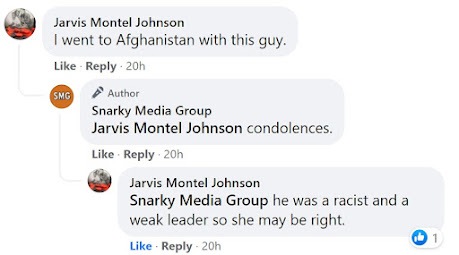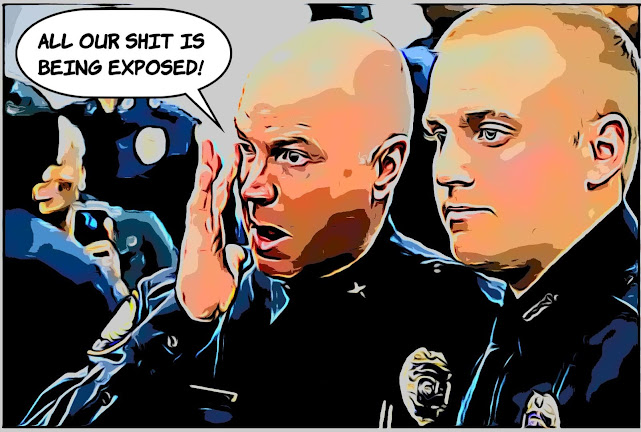ARKANSAS: 'Activist' Supreme Court Ruling on police ID photos called 'poor' by Co-Author of AFOIA
State 'Activist' Supreme Court overturns decision, restricts dissemination of police ID photos
Advocates for state’s open-records law say high court’s decision overly broad by John Lynch | |
| Arkansas' 'Activist Court' Makes Mockery of AFOIA. Casts valid doubts upon judiciary credibility. |
In a five-page decision written by Justice Robin Wynne, the high court overturned a lower court ruling that designated a collection of ID photographs of Arkansas State Troopers a public record. Such pictures are colloquially referred to as "mug shots."
The photo set, which police had released previously, was to include all troopers, except for those working undercover. ID photographs of undercover police are shielded from disclosure from open records laws.
Wynne extended that shield Thursday to allow police to withhold those photos when they are requested in such a large group because someone might be able to compare the photographs to other records, like police pay reports, which can be found online, and figure out the identity of undercover officers.
That theory was argued on behalf of Attorney General Leslie Rutledge by her senior assistant, William Bird III.
"Because the names, career service dates, and other identifying information of Arkansas State Troopers are publicly available ... it would be relatively simple to identify which troopers were undercover if [state police] were obligated to produce photos of all non-undercover troopers. Such a result defeats the purpose of the protections [for undercover officers]," Bird stated in written arguments.
Wynne wrote that he found that argument persuasive and that the lower court should have followed it.
"Clearly, comparing information already available to the public, from sources like the Arkansas Transparency website -- which provides names, service dates, salaries, race, gender, and other identifying information of State employees, including state troopers -- with a list of non-undercover troopers would reveal the identities of the undercover officers," the justice wrote. "This is because knowing who is not undercover would reveal that the officers whose photographs were not released are undercover. Accordingly, the trial court erred in ordering disclosure under FOIA, and the order is therefore reversed and the case dismissed."
"Over broad" is how Robert Steinbuch, a law professor at the University of Arkansas at Little Rock and co-author of the Arkansas Freedom of Information Act, described the decision. Wynne's ruling states that fellow Justices Shawn Womack and Barbara Webb agreed with his conclusions, but if they wrote concurring opinions, they were not released Thursday.
"The right way to account for the statutory protection of 'current undercover officers' is to not turn over photographs of officers who could be undercover," Steinbuch stated in an email. "But there are all sorts of police who never do undercover work, such as those who work in administrative functions. And the court swallowed them up in the exemption for 'officers currently working undercover.'"
On Twitter, Little Rock lawyer Matt Campbell who regularly engages in Freedom of Information litigation, wrote that the Supreme Court was looking for an excuse to limit the state's open-record laws."
"The Court ignored the plain language of the statute, refused to apply it just as written, and worked backward from the conclusion that it wanted to reach without providing any sort of analysis that would lead logically to that conclusion," he stated.
Campbell, who also runs the Democratic-leaning Blue Hog Report blog, tweeted that for the high court to have reached its conclusion, justices had to ignore portions of the Freedom of Information Act and overlook court precedent that makes the motivations of the requester of public records immaterial.
"This is a ridiculously poor decision that will provide less transparency about specific officers and, by extension, less transparency about law enforcement agencies as a whole. Worse, it's a results-oriented decision based on intentionally incorrect legal analysis," Campbell stated. "The Court interpreted the exemption in a way that got them where they wanted to go, regardless of what the statute actually said. That's the very definition of an 'activist court' full of 'activist judges.'"
The ruling that the photographs were public record came last April from special Circuit Judge William Wright, substituting for Pulaski County Circuit Judge Alice Gray. Wright noted then that only current undercover officers were shielded from disclosure, stating that if the Legislature had wanted those protections to extend to every police officer who might work undercover, lawmakers would have written the law that way.
The pictures had been sought by Russ Racop, a police critic who blogs and tweets as Bad Government in Arkansas, Bad City of Little Rock and Snarky Media.
Racop sued the state police in March 2020 under the Freedom of Information Act after the agency refused to release the pictures. That was despite having done so in 2019, providing him with about 165 photographs. The pictures are used on the officers' identification cards.
The state police lawyer said the decision to give the photographs to Racop in 2019 was a "mistake" that was done without consulting legal counsel. That wrong decision does not require the police to turn over more photographs, he told the judge.



Comments
Post a Comment
You are welcome to email your tips, corrections and/or comments to: aidcommission@gmail.com please indicate if you wish to remain anonymous or otherwise. We will post your comment without edit.